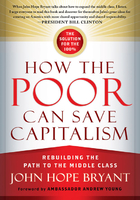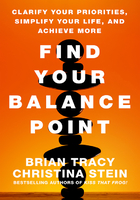It's been awhile. We've missed you!
-Securus, Illinois' prison phone company, in an email I received three months after Kayla's release from prison
From time to time, Kayla asks me to send one of her incarcerated friends a card or a letter for a birthday, or a death in the family, or simply "so she can hear her name" called out when the mail comes around, to provide a brief interruption in the insular monotony of the daily routine. "Mail call" can be the pinnacle of the day in prison-or the low point, for those prisoners who don't receive anything.
When Kayla's locked up again in the fall of 2011, I don't pay her any visits: I'm living across the country in California, where Ryan is finishing his master's degree. I'm bored there-it's a small university town with little to do outside of academia-and spend most of my nonworking time pacing through the public library and wandering up and down the same streets. Maybe it is my loneliness, or maybe it's Kayla's desperation-but for whatever reason, over these months, we grow closer than we've been in years. We're linked almost solely by letters. We share our weirdest hopes for the future (I'm briefly obsessed with moving to the North Pole), our tiniest short-term goals (she is working hard to befriend a squirrel she has met in the yard), and her day-to-day activities (memorizing all the muscles in the human body, painting and repainting her nails).
Kayla apologizes for letting me down in the past. I apologize for passive-aggressively slipping off the face of her planet when I'm mad at her. In our letters, we tell each other the truth. (She says she's scared she'll never get clean.) My first words aren't "Where are you now?" and my last words aren't "Where are you going?" like they were when she contacted me on the outside. She reassures me about my (undoubtedly smaller) worries and woes. She calls me her best friend, saying, "You're the only friend who I've kept-or who has kept me." And at the end of that stint in jail, a small, selfish corner of me is sad to see her released-thrown back into a universe without moorings, where the promises, ponderings, hopes, and truths that livened the pages of our letters will likely be crumpled up and tossed in the free-world trash.
This, however, is not the usual story of mail call. Most prisoners' siblings aren't wandering around Davis, California, with an abundance of free time, a love of letter-writing, and lots of spare change for stamps. Abraham Macías-who's on year eighteen of a twenty-five-year sentence at Pelican Bay, in California-tells me that, like visits, his mail quantity dropped off fairly rapidly after a short time in prison. Most people don't understand how much it means to prisoners to receive a letter, he says, because in the "real" world it's not a valued commodity. Even his mom writes only sporadically.
"She'll send a book of stamps or a package of writing materials, with an apology for not writing. The way most people do," he writes to me. "Instead of writing, people send money, offer things on a postcard shout-out. They don't know what a simple note does for us in prison."
The absence of mail can also have direct bodily consequences. Rev. Jason Lydon, who runs the queer anti-prison group and pen pal project Black and Pink, tells me that for more vulnerable prisoners (these usually include queer and gender-nonconforming people), a lack of mail can mark a prisoner as alone, abandoned by folks on the outside-and therefore an easier target for harm, especially from guards. "Mail call happens in a public space, and so folks are hearing the names of people who are getting letters, day after day," Jason, who's been incarcerated himself-in a segregated unit for LGBTQ prisoners where guard-perpetrated sexual violence was rampant-tells me. "If you're not receiving mail for years, you're more likely to experience harm or violence, because they know that it's less likely there will be consequences, that there's no one looking out for you."
The ABCs of Mail Call
Mail is scarce for almost everyone in prison. One reason is quite basic: Many prisoners and their families struggle to-or flat-out can't-read or write. Among prisoners themselves, only 3 percent were classified as "proficient" in reading and writing in a National Center for Education Statistics literacy assessment in 2003.[22]
Lacino Hamilton, who's incarcerated in New Haven, Michigan, staring down a life sentence, points out that in Detroit, where he's from, nearly half of adults are considered "functionally illiterate."[23] "Not only are prisoners overrepresented in those horrific numbers, but so are the family and friends of prisoners," he says, explaining that many of his own kin fall into this group. "I often go months without family and friend contact." Black and Latino family members living in poor communities with fewer literacy resources and more barriers to literacy are disproportionately affected by the problem.[24]
The literacy barrier poses problems for another giant group: Many of the 1.7 million children with parents in prison simply haven't learned to write yet.[25] Pennsylvania prisoner Sable Sade Kolstee's three kids were all under the age of five when she was incarcerated, and for much of her three-year stretch of prison time, her only contact was a smattering of brief phone calls with her oldest daughter. Letters being impossible, she missed out on the nuances of her kids' development, their emerging personalities, their daily passages of thoughts and feelings. (First words don't translate very well to thirdhand letters penned by adult relatives.) As Sable prepares for a much-anticipated visit with her children, she writes letters to me, sharing her worries that her two younger kids "wouldn't know me and would be scared."
"Anything Can Happen to Prison Mail"
Even for prisoners who write up a storm, including the many with whom I've corresponded, the prison mail system can prove a formidable opponent to sustained, meaningful correspondence.
In early 2008, I was writing to Eugene Fischer, who was serving a life sentence for marijuana smuggling. (Since he was a federal prisoner, Eugene was ineligible for parole-though years later, in 2012, he was granted a rare resentencing and released.) At one point, I expressed frustration about the fact that one of Eugene's letters, which he'd referenced repeatedly in a later note, never made it to my box. Eugene, having had twenty years of prison experience to cushion the blow, took the loss in stride. "Anything can happen to prison mail, both incoming and outgoing," he wrote to me. Other prisoners and ex-prisoners have described this phenomenon-how there's virtually no account ability for their letters. Given that for many, it's their main form of communication, this unpredictability can contribute to their sense of helplessness, isolation, and bitterness toward the system.
Since prisoners' mail is subject to being read by staff, self-censorship is rule number one for ensuring that a letter reaches its destination. Prison officials in most states are permitted to peruse prisoners' mail at will,[26] so any letter written to or from prison has got to be composed for multiple audiences. (Kayla once said to me, "The COs really like your letters!") Each time I receive a letter, I wonder: which parts are really directed at me, and which parts are aimed at an anonymous third party dedicated to searching for what shouldn't be there, what words shouldn't be crossing the walls?
Beth Derenne, who co-coordinates the Women's Prison Book Project, is well schooled in the endeavor of getting not only letters, but packages (which are even more regulated and scrutinized) across those walls. I meet up with her in December 2012, at the small, independent Minneapolis bookstore where the project is based. The volunteer-run group collects and sends books to incarcerated women, corresponding with them about what books they'd like to receive. Beth regales me with stories of failed attempts to mail books; one can never tell whether or why a book will be sent back.
"A lot of prisons don't allow books that discuss sexual assault-so sometimes they'll even send back classic literature," Beth says, pointing to a copy of The Color Purple by Alice Walker. "This is crazy, because one fourth of incarcerated women have been sexually assaulted. But they can decide anything's a safety risk." She ticks off more rules from various prisons on her fingers: no LGBTQ-related books, no activity books, no Harlequin romance novels, no books involving witchcraft (including fiction). Many of the books the women seek most are prohibited.
A few days later, Beth emails me a list that WPBP has compiled of restrictions at prisons around the country; regulations are always changing, so the project struggles to keep up. Limitations include "No blank journals," "no outdated magazines," and "no coloring books."
A 2011 report from the Texas Civil Rights Project notes that prisoners in that state are permitted to receive white supremacist texts like Mein Kampf and the Aryan Youth Primer, but can't receive some books by Henry Louis Gates, Sojourner Truth, Studs Terkel, Noam Chomsky, and Al Sharpton, on the pretext that materials containing racial slurs are prohibited-even if the "slurs" are included because they're being critiqued.[27] The report states, "The works of some of the finest African American authors, like Richard Wright and Langston Hughes, are banned for frank discussions of race. The context of these works, however, is irrelevant to TDCJ [Texas Department of Criminal Justice] censors." Also discussed is the banning of self-help books aimed at aiding survivors of sexual abuse in overcoming their trauma.
Sometimes, it seems, the censors just have a really bizarre sense of humor. The crowning rule on Beth's list: "No crochet books."
"Ah, the Phones ..."
With illiteracy, censorship, time, and effort making it tough to foster a sustainable relationship through the mail alone, phone calls are precious commodities. The first time Kayla called me from jail, I hung up two seconds in-right after hearing, "You have a collect call ..." (I was clueless, and missed the "... from an inmate at Cook County Jail; press five to accept the call.") Since then, my family and I have navigated an ongoing maze of different phone plans, call requirements, prepayments, and other hurdles in order to pay an absurdly large fee to a private company so we can talk to Kayla on the phone for a few minutes when she's in prison or jail.
This is the story of millions of prisoners' families' attempts at communication, except that many are halted halfway through: The costs are simply too high. Family members charged $1 per minute for a call may skip the call altogether, depending on their budget (which, considering the demographics of the prison population, is bound to be very tight). A December 2013 investigation by Prison Legal News disclosed some of the motives behind the prices of Inmate Calling Services (ICS), the prison phone company, whose rates
are much higher than non-prison rates, in large part because prison phone companies pay "commission" kickbacks to the corrections agencies with which they contract. Such commissions are usually based on a percentage of the revenue generated from prisoners' calls and have nothing to do with the actual cost of providing the phone service. Because ICS providers factor commission payments-which currently average 47.79% for state Departments of Corrections (DOCs)-into the phone rates they charge, the rates are artificially inflated.[28]
Recently, municipal governments in Chicago and elsewhere have started cracking down and cutting fees for jail calls.[29] The FCC has taken action to reduce the costs of calls across state lines, and some states have reduced their call fees as well. Still, almost every prisoner I've spoken with says that costs remain an obstacle for their loved ones.
No one knows the topography of the phone-rate battle better than New Haven, Connecticut, activist Barbara Fair, who regularly speaks out against the exorbitant fees. Barbara has seven sons (currently all in their thirties and forties), and all of them have been incarcerated at various times. Barbara has lived a breathless juggling act that revolves around the system and its barriers, paying weekly visits to multiple prisons, enduring panic attacks and sleepless nights, and working full time while taking care of the children still at home. The phone calls topped off the mountain of ever-renewing obligations: At one point, when three of her sons were in prison, Barbara's phone bill totaled out at $400 per month. She tells me that the pileup of fees "caused me to lose phone service many times, trying to stay on top of the monthly bills." This is an everyday occurrence in poor communities of color like Barbara's.
Even if the money's there, a relationship based on prison phone calls is an exercise in messy clairvoyance. The calls pop up unpredictably: prisoners don't know when they'll be able to use the phone, and for recipients, it's often not possible to pick up at the time the phone rings. Even for a work-from-home family member like me, the calls are easy to miss.
When you're able to catch one, it can be elating: your initial updates spilling out in a rush of pent-up energy, your loved one's voice audibly lifting at the sound of yours. My calls from Kayla have usually been peppered with frantic choruses of "I love you!" and condensed bursts of affection. "You mean so much to me!" "You're my best friend!" "You're my best friend!" "I miss you!" "I miss you more!"
Yet no matter how loving or deep your conversation, its parameters-and how little you control them-are never in question. Calls are interspersed with blaring notifications that you're on the phone with someone in prison. ("Ah, the phones," writes Abraham Macías, "with their constant interruption that reminds you and your loved one that they are on the phone with a 'California inmate'!") And they're cut off with barely a warning, often leaving you feeling further apart than you felt before picking up the call.
No One at the Other End
Prisoners quickly learn that even when they've surmounted the barriers of cost and restrictions, they still may not be able to make a call-at the drop of a plate, guards can yank phone privileges. David Martinez,* serving a life sentence in Florida, described one such situation: "There was a fight in another unit, nothing to do with the rest of the compound, and the warden decided to lock us all back down," he wrote me, a few years back. "[The warden] calls all the shots. The complex warden has taken our telephone, kept us on lockdown in our rooms for 24 hours, 7 days a week." Kayla has experienced the same thing to a lesser degree. Often, when we don't hear from her while she's in prison, it's because of a lockdown spurred by an isolated incident. Wardens may restrict telephone rights (as well as visitation) at will-there are no hearings or trials or appeals when it comes to disciplinary action inside the walls. When someone "acts up"-an action whose definition is usually at the often racist, homophobic, transphobic, politically repressive discretion of the officers-phone privileges are frequently the first to go.
All barriers aside, there's a nearly insurmountable reason why some prisoners don't make phone calls: There's no one left to dial. Mauricio Rueben, a federal prisoner serving a decades-long drug sentence in Texas, ticks off his lost calls in years. His wife of seventeen years divorced him eight and a half years into his incarceration, so that connection dropped off the wires. After ten years, Mauricio says, the "out of sight, out of mind effect" set in, and friends stopped answering his phone calls. After fifteen years, letters went unanswered, and the only way to contact anyone was by calling persistently. Twenty years in, he says, there's no one left but his mother and two brothers-and he doesn't call them often. "When I do call home ... I can sense my family's hurt and discomfort of me being in here and they not being able to do anything about it," Mauricio writes to me, adding that a necessary "state of numbness" has conquered both ends of the line. "They are willing to end the call as soon as possible [rather] than to deal with these hard feelings."
Abraham Macías talks of fellow prisoners who have phone privileges, but no one to call. "There are guys in here that haven't had a phone call in 20 years," he says. In order to reach out, prisoners must retain some vestige of connection with someone who'll accept the call on the other end. They must be able to identify specific people on the outside who are still in their lives-people with whom the ties are strong enough, the relationship copacetic enough, and the money, well, there enough to pick up the phone. An endeavor to reach out to new people on the outside-to cast out a line into the unseen larger world-can become a monumental quest. The line has simply gone dead.
"How Do I Compete with Facebook?"
Ironically, over the past thirty years' incarceration boom, another boom has taken place-in communication technology. The world has exploded with a dizzying swarm of new ways to connect. Yet for many who are locked up, the prison door feels even more tightly shut. It's a murky equation: Society has evolved to a place where, no matter how far you are from home, you can connect with your loved ones in seconds-if you've got the resources. But in order to maintain the prison-an institution that not only isolates, but also subtracts people from society-prisoners must be not only removed from their communities but also cut off from the maze of intricate networks by which contemporary humans exchange information and emotion.
And so, while many on the outside move on from letters and phone calls to social media, email, Skype, texts, and whatever comes next, some incarcerated people still can't get their hands on an electronic typewriter. Kayla talks about prisoners who haven't touched a computer-ever. Not all incarcerated people experience technological restrictions in the same way: Federal prisoners and a slowly growing number of state prisoners are able to receive (and sometimes send) emails, for a fee. Like phone services, these limited email systems are operated by private companies and are subject to close surveillance.[30] Access to the Internet itself-beyond email-is prohibited.
The ban makes intergenerational contact especially tricky. "Having a teenage daughter ... how do I compete with texting, Facebook and Twitter?" Abraham writes to me. He now hears from his daughter three or four times per year. "I write in hopes to develop some kind of relationship, but I can't compete with the instant reply that kids are used to these days. The only thing to do is hope my daughter reads my letters and knows my love for her is unconditional." Abraham acknowledges that aside from his daughter, an Internet connection wouldn't improve his family relations: Most of his relatives don't have regular access to a computer.
To be sure, efforts that strain at the seams of this disconnect have existed and evolved since the dawn of the Internet: Many prisoners' families and outside allies have started up blogs, websites, and Facebook accounts in their names to rally support for them and to give their words an audience. A few sites publish prisoners' blogs for a broader readership, including Between the Bars, where any prisoner can send entries to be scanned or transcribed and posted, and the Sylvia Rivera Law Project's blog, which regularly shares uncensored posts sent in by members of the project's Prisoner Advisory Committee. These types of outlets provide incarcerated people with vital ties to the networked world. Still, they must depend on prison postal mail and the gatekeepers that process it to bring their words to the web.
When I ask Alex Friedmann, the managing editor of Prison Legal News and associate director of the Human Rights Defense Center, for the forecast regarding the ongoing Internet ban, he doesn't predict any changes on the horizon. Alex, who spent ten years in prison and jail himself before his careers in journalism and activism, rattles off a list of logical explanations. "The purported reason is due to security; prison officials don't want prisoners googling 'improvised prison weapons' or 'how to escape in five easy steps,' or bringing up the blueprints from the prison where they're confined," Alex says. "Other concerns involve searching for contact info to intimidate or threaten witnesses, or coordinate gang activity or other illicit acts via the Internet. More likely, though, is that prison officials don't want prisoners to be viewing porn sites." Is this deprivation simply about punishment, or does it aim to restrict specific thoughts and behaviors, stultifying the possibilities of fantasy-based, "virtual" sexual connection, just as physical connections with those outside are severed?
Whatever the rationale, the prospect of Internet access does seem a precarious business: Inching open the door to the web could diminish and demystify the prison walls. At a time when much of social life takes place virtually, access to those channels might swing open the gates of interaction in a way that the early prison architects could never have dreamed possible. Thus, to so lidify the inside/outside barriers that define and maintain the institution of prison, the Internet ban must live on. And, according to Alex, it's not fading away "anytime soon."
Bleak Offerings
As a person who works remotely and spends most of my waking hours online in some capacity, it's hard to envision a tech-free life. So, in the fall of 2012, as Kayla's release from prison draws near, I'm convinced that a successful adjustment to the online universe will ease her acclimation to the rest of it. I crouch over my computer late at night, allaying my insomnia by setting up brand-new Gmail and Facebook accounts for Kayla: fresh accounts for a fresh start. I decide that, as a nice little surprise, I'll scope out her Facebook social scene and send some requests, so that upon her reinauguration into the free world, she'll have more than zero "friends."
I "suggest" friendships with some of her old pals, and with some of my longtime buddies whom she vaguely knows and probably remembers. Then I glance through the profiles of her friends who've done prison time, or are currently serving time. It's eerie: Their Facebook walls have morphed into memorials. They're scattered with wishes of "love" and "hope" and "courage," sent out into the ether, as if they'll fly beyond the screen and alight inside the prisoner's cell. The posts are bleak offerings, withered testaments to the connections cut short by incarceration.
To call prison "isolation"-and to leave it at that-wouldn't be quite accurate. It's more like this: Prison seals its inhabitants off from the world, and then sells (by means of visits, or commissary products, or phone calls, or stamps, or email) a stunted version of the world back to them, in bits and pieces. Sometimes, links to the world are sold for money, sometimes for compliance, sometimes for racial privilege, sometimes for political docility, sometimes for gender normativity, sometimes for luck.
It's like wrapping someone's head in airtight plastic wrap, then offering to sell them measured sips of oxygen, a little at a time, for years on end. Once those years pass, will that person remember how to breathe naturally, as second nature? And even if they've never had the luxury of breathing naturally-if their lives have always been suffocated in one way or another-will their months or years of systematic, supervised suffocation really teach them how to breathe free?















